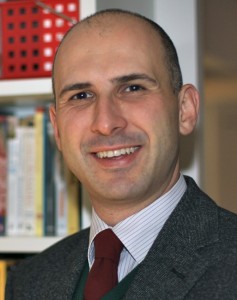 Everything as expected: after March’s landslide victory of the Progressive Party, Aleksandar Vučić has been sworn in as Prime Minister with 198 votes in favour and 23 against last Sunday, 27 April. One month on, are his walloping promises looking any nearer to fulfilment? “Vučić has rightly placed great emphasis on economic performance and reforms, but Serbia remains a place where political preference matters more than expertise”, argues Branislav Radeljić.
Everything as expected: after March’s landslide victory of the Progressive Party, Aleksandar Vučić has been sworn in as Prime Minister with 198 votes in favour and 23 against last Sunday, 27 April. One month on, are his walloping promises looking any nearer to fulfilment? “Vučić has rightly placed great emphasis on economic performance and reforms, but Serbia remains a place where political preference matters more than expertise”, argues Branislav Radeljić.
The snap elections held in mid-March were intended as some kind of evaluation of the politics in place and, more importantly, of Aleksandar Vučić. As it happened to be the case, Vučić’s promises – strengthening his commitment to the fight against corruption, additional foreign investments in Serbia and provision of new jobs – resulted in a landslide victory that immediately encouraged the question of whether the new government would be Progressivists-based only or Vučić would also extend invitation to some outsiders. Still, given how much he insisted on the elections himself, the first option could be perceived as fairer towards the impoverished Serbian society that actually developed a quite strong belief in the all-in-one figure of Vučić. However, it did not take him long to start talking about possible partners.
Now, when the government has been formed, it is not really possible to think of it in terms of something completely new, given the list of the appointed players (among others: former PM Ivica Dačić is now minister of Foreign Affairs, the ‘Wunderkind’ Lazar Krstić was confirmed Finance minister, Zorana Mihajlović is being moved from Energy to Construction, Nikola Selaković remains firmly at the Ministry of Justice, and former President of the National Assembly Nebojša Stefanović is now minister of Interior). Can we rely on them to propose and pursue necessary reforms? Will the media that glorified and clearly favoured Vučić over other candidates be ready to challenge him in case the super-ambitious Belgrade on Water project falls through or the trend of granting jobs to party affiliates continues? Considering the last two years of Progressivists’ performance, it is difficult to believe that any remarkable progress will be achieved any time soon, especially when we think of the professional experience and achievements of some of Vučić’s closest new, but old, associates. In addition, as demonstrated in his dealings with Saša Radulović, former Minister of Economy, Vučić can easily discard anyone who is ready to contradict his agenda. Young, educated people still look beyond Serbian borders as they struggle to see themselves in the current setting (like in the previous ones), in which political party preference very often matters more than any expertise.
In his initially emotional and narrative, and then more analytical speech, Prime Minister Vučić clearly outlined the problems affecting Serbia and what is necessary in order to improve the overall situation. Accordingly, he has rightly placed the greatest emphasis on economic performance and urgently required reforms, followed by other areas that are in need of fixing, such as culture, education, working ethics and so on. For example, he stressed the significance of freedom of speech, which is surely a big step forward, if we consider the largely controlled media performance, especially before the March elections, including the fact that no newspaper or, even more relevantly, tabloid, dared to talk about his wedding. Still, a number of remarks mentioned in an overall long talk seem to be nothing more than just phrases (such as the comparison of the Belgraders to Brothers Grimm’s Hansel and Gretel), thus without any constructive strategy as to how to address them. From a politician like Vučić, one would definitely expect to hear more. Maybe these strategies are yet to be planned.
Note: This article gives the views of the author, and not the position of LSEE Research on SEE, nor of the London School of Economics.
———————————————–
Dr Branislav Radeljić is Senior Lecturer in International Politics at the University of East London and former LSEE Research on SEE Visiting Fellow. In 2014, Branislav has been Telluride Association faculty fellow, hosted by the University of Michigan, and the 2014 EU Distinguished Visiting Speaker, at the EU Center of Excellence, University of California, Berkeley.




Good point: an astounding degree of continuity rather than change, in spite of the efforts to portray the new government, approach, and the policy as something substantially new or “modern”.
The question is – is Serbia sliding into authoritarianism, a trend already observed in some neighbouring states such as Macedonia and Hungary (note also: Republika Srpska). And also – is the EU capable of reigning in the anti-democratic practices of Prime Minister Vucic? Is external pressure more powerful in precluding blatant forms of regional hostility but unable to deal with more subtler anti-democratic processes within a country?